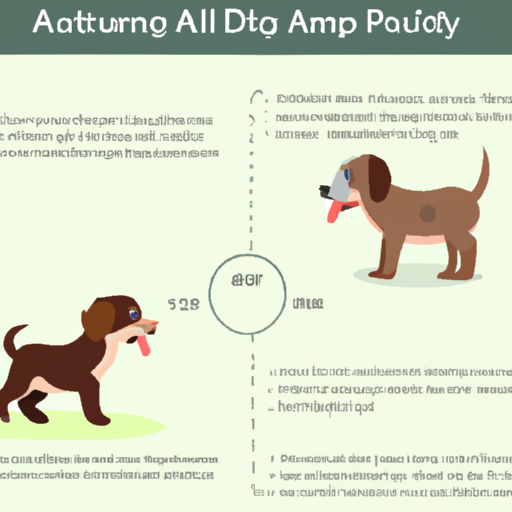As a caregiver to your beloved pet, you might find yourself wondering: when does your fluffy, playful companion stop being a puppy and become a fully-fledged dog? Let’s dive deep into this topic and unravel the mysteries of canine development.
Understanding Canine Ageing
When you’re thinking about your puppy, it’s crucial to understand that dogs don’t age at the same rate as humans. In fact, the first year of a dog’s life can be equivalent to 15 human years.
Here’s a simple table to give you an idea of how dogs age:
| Dog Age | Human Age Equivalent |
|---|---|
| 1 Year | 15 Years |
| 2 Years | 24 Years |
| 3 Years | 28 Years |
| 4 Years | 32 Years |
| 5 Years | 36 Years |
Remember, these are approximations and can vary by breed and size.
Size Matters: Small vs. Large Breeds
Dogs come in all shapes and sizes, and this can significantly impact when they stop being considered puppies.
- Small Breeds: Dogs that will weigh less than 30 pounds at maturity are considered small breeds. They typically reach adulthood between 9 and 12 months of age.
- Medium Breeds: Medium breed dogs weigh between 30 to 80 pounds. They generally mature between 12 and 14 months.
- Large Breeds: Dogs that will weigh more than 80 pounds are considered large breeds. These dogs may not reach adulthood until they’re between 18 and 24 months old.
Physical Maturity vs. Behavioral Maturity
It’s not just about physical growth. There’s also behavioral maturity to consider:
- Physical Maturity: This means your dog has reached their full-size and sexual maturity. Small breeds reach this stage sooner than large breeds.
- Behavioral Maturity: This refers to when a dog’s behavior becomes more adult-like. Behavioral maturity typically occurs between 1 and 2 years of age, but it can be later in large breeds.
The Role of Training in Puppyhood
Training is key to helping your puppy transition into adulthood. Here are some critical areas to focus on:
- House Training
- Socialization
- Basic Commands
- Leash Training
Remember, consistency is your best friend when it comes to training.
Nutrition Needs: Puppy vs. Adult Dog
As your dog transitions from puppyhood to adulthood, their nutritional needs will change. Puppy food is designed to support growth, but as your dog matures, they will need food that helps maintain their health and weight.
Consider transitioning your dog from puppy to adult food around the time they reach physical maturity.
Signs Your Dog is No Longer a Puppy
Here are some signs that your dog might be leaving their puppy days behind:
- Decreased Interest in Play
- Increased Independence
- Changes in Sleep Patterns
- Sexual Maturity
- Stabilization of Growth
FAQ Section
When is a small breed dog no longer considered a puppy?
Small breed dogs typically mature faster than larger breeds. They’re generally considered adult dogs around 9 to 12 months of age.
When should I switch my dog from puppy food to adult dog food?
You should start transitioning your dog from puppy to adult food around the time they reach physical maturity. This can range from 9 months for small breeds to 24 months for larger breeds.
What changes can I expect as my dog matures?
As your dog matures, you may notice less interest in play, more independence, changes in sleep patterns, and sexual maturity.
Remember, every dog is unique and their development can vary. Always consult a vet if you’re unsure about your dog’s development. After all, as a caregiver, your goal is to ensure your furry friend grows into a healthy and happy adult dog.



